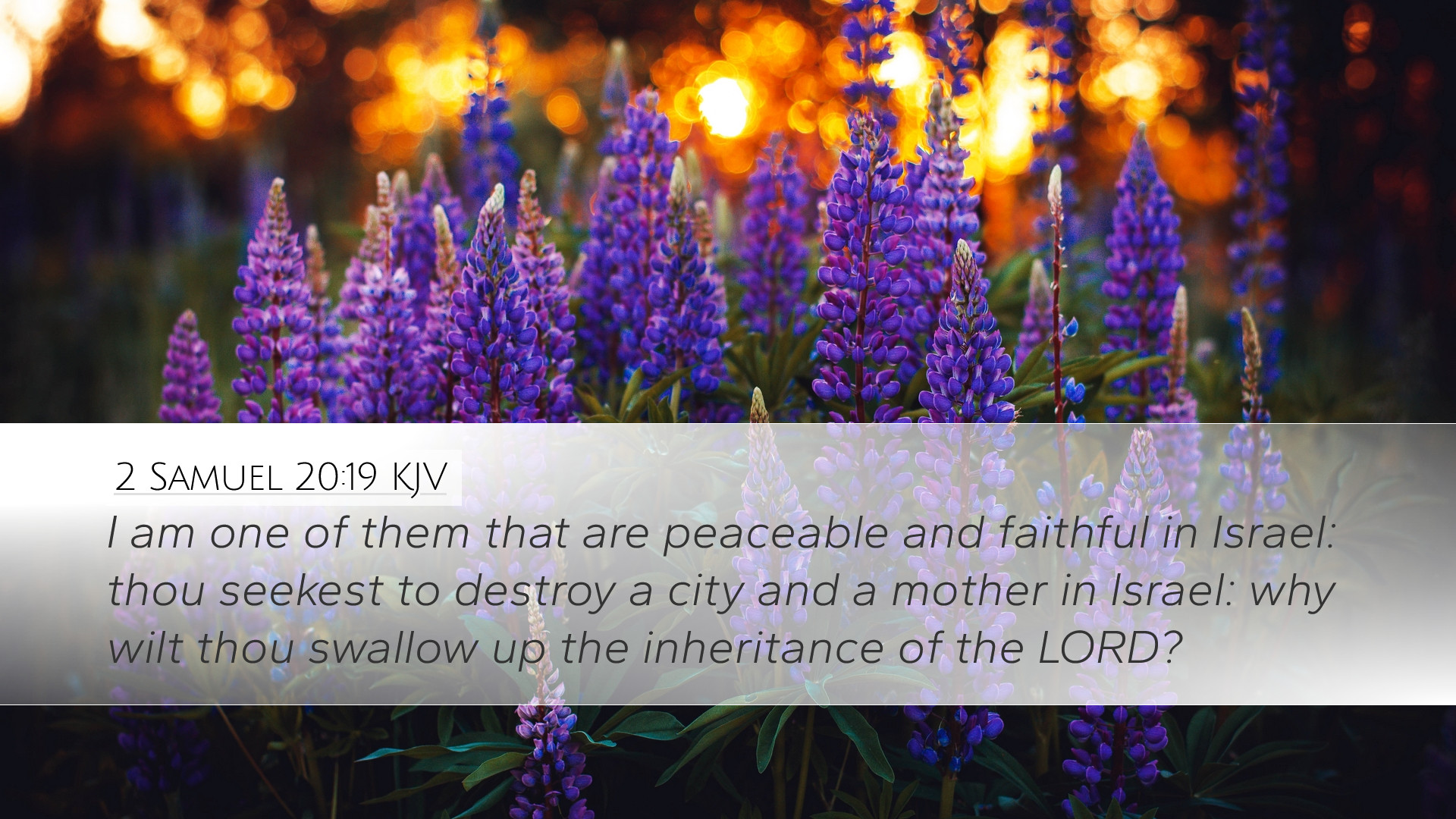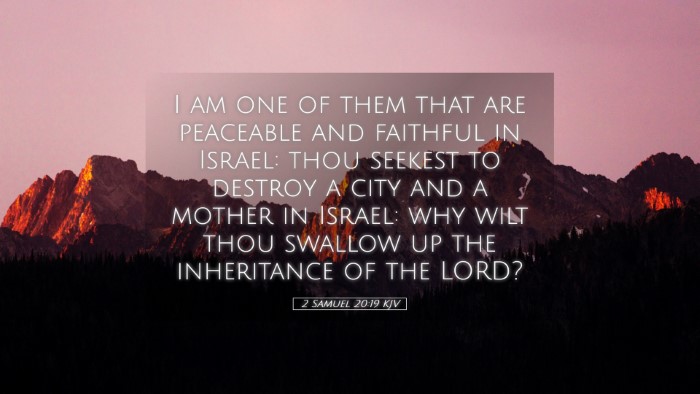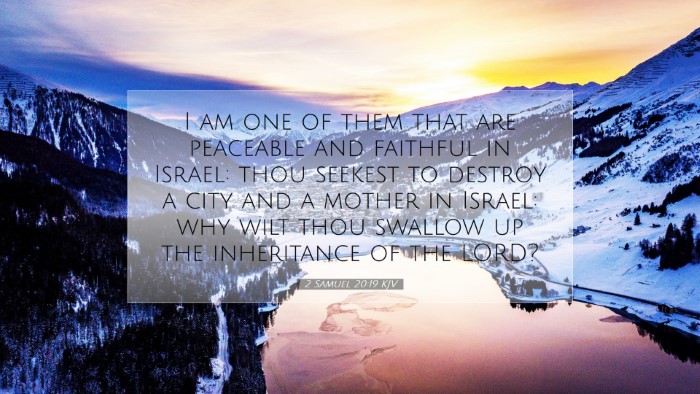Commentary on 2 Samuel 20:19
Verse: "I am one of those who are peaceable and faithful in Israel. You seek to destroy a city and a mother in Israel: why will you swallow up the inheritance of the Lord?"
Introduction
This verse is part of the narrative surrounding the rebellion of Sheba, son of Bichri, which threatened the stability of King David's reign. The verse reveals the plea of a wise woman from Abel of Beth Maacah, who seeks to negotiate peace and avert destruction. In exploring this text, we can draw from the insights of several public domain commentaries, which offer theological, contextual, and practical insights valuable for pastors, students, and theologians.
Contextual Background
The events in 2 Samuel 20 come after a tumultuous period in David's kingship, marked by Absalom's rebellion. Now, another insurrection led by Sheba threatens the unity of the nation. The wise woman’s intervention highlights the tensions within Israel and serves as a call for reason amidst chaos.
The Woman's Appeal: Insights from Commentaries
The wise woman's declaration positions herself and her city as loyal and peaceful members of the Israelite community. According to Matthew Henry:
- Significance of Peace: She identifies herself as "peaceable and faithful," indicating her desire for reconciliation and her allegiance to the king. This highlights the role of community leaders in fostering unity.
- Warning Against Destruction: She articulates a warning, suggesting that the attack on her city is akin to swallowing up the inheritance of the Lord, which underscores the covenantal aspect of Israel’s identity.
Albert Barnes elaborates by emphasizing the implications of "swallowing up the inheritance of the Lord," which relates to the land given to the tribes of Israel. He notes:
- Covenantal Identity: The woman's plea reflects a deep understanding of Israel’s connection to their land, portraying the city as integral to God’s covenant with His people.
- Call for Wisdom: Her wisdom contrasts sharply with the brutish approach of military action, serving as a reminder of the importance of wisdom in leadership during crisis.
Adam Clarke also provides valuable insights into the nature of the woman's argument. He states:
- Metaphor of Motherhood: By comparing the city to a mother, her appeal underscores the protective instinct towards community and heritage, encapsulating the essence of nurturing peace.
- National Integrity: Clarke emphasizes that her statement invokes national consciousness and the shared responsibility of all Israelites to protect their heritage.
Theological Implications
The verse carries significant theological implications regarding the nature of God's people and their responsibilities. The woman's appeal encapsulates several key themes:
- Peace as a Godly Virtue: The woman identifies as peaceable, invoking the biblical ideal of shalom, which signifies wholeness and well-being extended within the community.
- Divine Inheritance: The reference to the "inheritance of the Lord" implies that land and community are gifts from God, leading to the conclusion that their destruction would be tantamount to defying God’s will.
- Collective Responsibility: Her plea serves as a reminder that each individual within the covenant community is accountable for the well-being of the collective.
Practical Applications
For contemporary readers, particularly pastors and leaders, several applications emerge from this verse:
- The Role of Peacemakers: The wise woman exemplifies the role of individuals who seek to mediate peace in conflictual situations.
- Value of Wisdom in Leadership: Leaders should prioritize wisdom over brute force in decision-making, reflecting the character of God.
- Understanding Community Heritage: Acknowledging and protecting the spiritual and cultural heritage of communities is paramount for maintaining unity and identity.
Conclusion
2 Samuel 20:19 serves not only as a historical account of a critical moment in Israel's history but also as a profound lesson in the values of peace, wisdom, and communal responsibility. The wise woman's plea invites us to reflect on our roles within our communities and challenges the church today to be guardians of peace, preserving the integrity of the divine inheritance bestowed upon us.


